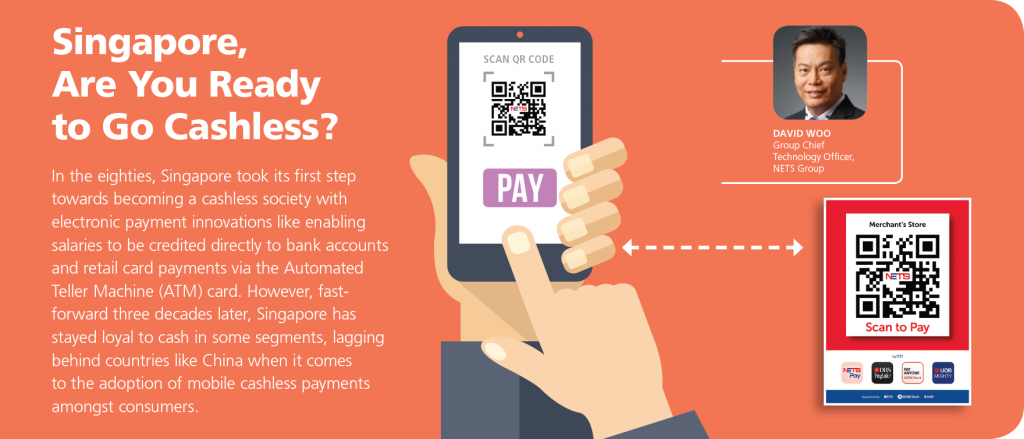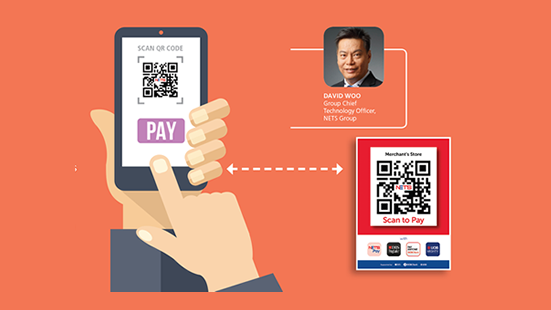Is Singapore Ready to Go Cashless?
An Early Adopter of Electronic Payments
Singapore’s push towards becoming a cashless society began as far back as 1985, with the introduction of General Interbank Recurring Order (GIRO) and NETS Electronic Fund Transfers at Point of Sale (EFTPOS). GIRO was groundbreaking in enabling bill payments electronically and receipt of salaries through direct credit to bank accounts, and NETS EFTPOS allowed consumers to make purchases with just an ATM card and Personal Identification Number (PIN).
In 1996, Singapore was also one of the first countries to introduce an electronic prepaid card on a nationwide basis with the NETS CashCard. Through the 2000s, rapid advances in Internet technologies, applications and mobile services enabled electronic payment solutions to become more pervasive. At NETS, this period was marked by the launch of eNETS, which facilitates online payments via credit card or debit card on merchant websites, and the contactless NETS FlashPay card for transit and retail payments.

Loyal Supporters of Cash
However, despite the wide variety and availability of cashless payment methods in the market, Singapore remains a resolutely cash-based society in certain segments.
A Monetary Authority of Singapore (MAS)-commissioned KPMG study in 2016 found that cash is used in 60% of all non-stored value facility transactions, making it the second most widely used payment instrument in the country.
Cash is also the preferred payment method for small-value transactions, be it at hawker centres, provision shops or for taxi fares.
Since cash has worked well for Singaporeans, why then the insistence on going cashless?
The answer can be found in the same report which estimates that the social costs of cash and cheques is around 0.5% of Singapore’s GDP or about S$2 billion per year.
So if the benefits are clear, how can we encourage Singaporeans to embrace digital payments? For a new payment service to take off, a seamless experience has to be offered, giving users a simple and secure alternative to cash that would ultimately supersede it.
With this in mind, PayNow, an enhanced peer-to-peer funds transfer service was introduced in 2017, enabling individuals to send and receive money instantly from one bank to another, just by using mobile numbers or identification numbers. A few months later, NETSPay and NETS QR were also launched, specifically targeting traditionally cash-based environments like hawker centres and coffee shops, simplifying digital payments when it comes to making small purchases.
To date, more than one million Singaporeans have linked either their mobile numbers or identity card numbers to their bank accounts via PayNow, sending over $370 million. The response to NETS QR payments at hawker centres has also been encouraging, with the number of transactions doubling every month since it was launched.
It may be some time before Singapore becomes a truly cashless society, but early indications are positive. With the aim of building a new digital payments ecosystem that is accessible to all, the NETS Group will continue to collaborate with other developers and FinTech players to bring about a behavioural change, not only in payments, but also other aspects such as budgeting, to support Singapore’s Smart Nation vision.

An article contributed by NETS to Singapore Computer Society’s Quarterly Magazine 2018 Issue 1 on cashless society.
